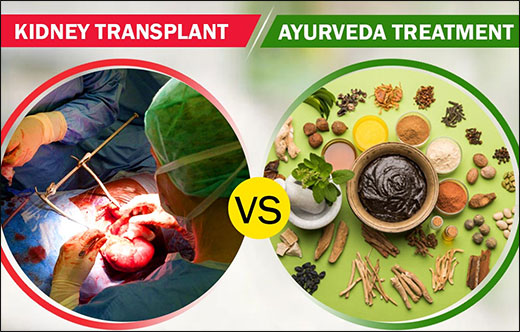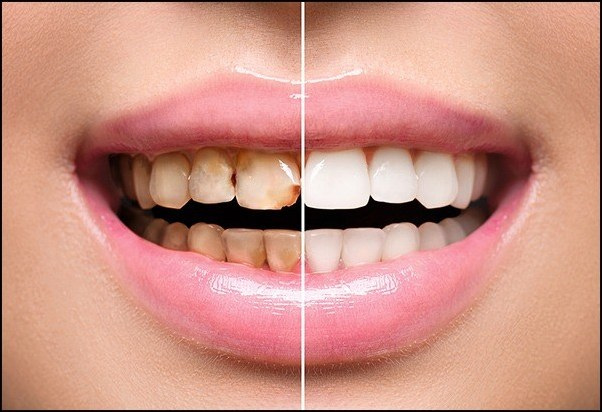How To Avoid Kidney Transplant With Ayurveda
Abstract
Kidneys are the two bean-shaped organs lying on each side of the spine just below the rib cage and behind your belly. Each kidney is about 4-5 inches in length with a million tiny filters called nephrons. Kidneys are drainage organs of your system and its main function of the kidneys are to filter and excrete the waste minerals and free fluid from the body in the form of urine and keeps the fluid and electrolyte balance in the body. This is an alarming increase of chronic kidney disorders that is enhanced due to the rising rate of the disturbance in life-style and it also raises the life-expectancy of disease. In this article we are going to discuss kidney diseases and their management through Ayurvedic herbs to avoid kidney transplantation.

Introduction
In renal diseases, kidney transplantation is recommended for those who have serious illness related to kidneys or dysfunctioning of kidneys or it may result in dialysis. A kidney transplant is a surgical procedure performed to replace the chronically diseased kidney to the healthy kidney and this procedure differs from person to person. The kidney can be replaced by a living donor or any deceased owner of the kidney. Transplantation can also be referred to as living transplantation when any family member or living donor donates one of their healthy kidneys. However, not all cases need to be transplanted, but just consult your physician to guide you properly for this procedure. Some of the major renal diseases that may result in kidney transplantation like –
- Congenital renal obstructive disorders that may result in nephrotic diseases like hydronephrosis, obstruction of ureteropelvic junction, vesicoureteral reflux, congenital nephrotic syndrome etc.
- When kidneys are not able to filter the wastage, or harmful substances that start to accumulate into the body, that condition can raise the blood pressure and may lead to kidney diseases or even failure. Here, is the condition where kidneys are 90% damaged and not functioning properly. Some popular conditions that may lead to this condition is Diabetes, uncontrolled blood pressure, polycystic kidney anomalies, chronic glomerulonephritis.
Complications of Kidney Transplantation
People who are suffering from these conditions like kidney failure choose the dialysis or kidney transplantation for their better quality of life. But they may experience other complications of the procedure like-
- Bleeding disorders
- Blockage or leaking of ureters
- Prone to get infections
- Rejection of kidney transplantation from the body.
- Infection or cancer can be developed from kidney transplantation.
- This procedure can also land into heart attack, stroke or death.
Kidney transplantation can manage the advanced kidney disorders or failure of kidneys but the surgery is not the perfect management of the disease. Some renal illnesses may flare-up after the surgical procedure also, the major complication of this procedure is rejection of the transplanted kidney. Patients who are suffering from these end-stage renal diseases need to expel out all the waste material from the bloodstream that may be done by dialysis or kidney transplantation but in Ayurveda Chronic kidney illnesses can be managed by knowing its leading cause that can be diabetes, high blood pressure and other renal diseases. Chronic kidney diseases are correlated by mutravikara upadrava or prameha upadrava is primarily aggravated by Vata dosha vitiation. This condition can be treated by Basti therapy that helps to cleanse the accumulated dosha in our urinary tract disorders. This therapy is used as the detoxification process and helps to expel out all the vitiated dosha from the body. Ayurveda helps by recommending a proper Ahar (nutritional diet) and a proper Vihar (lifestyle changes) to manage the condition that helps effectively. Some miraculous herbs are also recommended for these patients to get wonderful results.
Diet Indications
- Low protein and low sodium diet is prescribed for kidney patients.
- Avoid eating high protein food, citrus fruits, junk food, preserved foods, caffeine or alcohol.
- The patients with chronic kidney diseases are contraindicated to eating white refined flour, tomato, garlic, frozen vegetables, and raw salads.
- Eat split lentils like yellow lentils, orange lentils, split pigeon peas, split chickpeas, green gram.
- Avoid whole milk products like cream, curd, full-fat yoghurts, cheese, butter etc.
- Avoid red chillies or green chillies or excessive salt from the food.
Lifestyle Tips for the Kidney Patients
- Walk for at least 30 minutes per day.
- Regular exercise or daily meditation should be recommended to stay active.
- Achieving a healthy weight, helps to lower the blood pressure or blood sugar level to stop the progression of kidney failures.
- Try to do healthy yoga, cycling, walking, jogging or anything else that is prescribed by your physician.
- Quit smoking, alcohol consumption, that leads to decrease the blood flow to the major organs like kidneys or liver etc.
Some Wonderful Herbs
Above mentioned herbs are very helpful in relieving the symptoms related to chronic kidney diseases and supports the improvisation in kidney functioning. Varun, punarnava, gokshur, kasni, bhumi amla, shirish, shigru, apamarg are the basic herbs that are indicated in the treatment of chronic kidney diseases and may help to avoid the dialysis condition or kidney transplantation. Some of these are –
- Varun (Crataeva nurvala)
- This wonderful herb helps to manage kidney diseases. It is an excellent herb to give relief from kidney failure, and helps to improve the functions of kidneys.
- It relieves the excessive fluid accumulation or swelling that are shown due to kidney failure.
- Gokshur (Tribulus terrestris)
- It is used as a stamina enhancing herb and also used to clear out the obstructions from the urinary tract and gives strength.
- It helps in regeneration of kidney cells and also helps in avoiding dialysis or kidney transplantation.
- Bhumi amla (Phyllanthus niruri)
- This herb helps to manage the painful conditions related to kidneys.
- It has a diuretic effect so that it can excrete excessive fluid from the body.
- This herb not only helps to manage the kidney function but can give efficient results in liver diseases also.
- Punarnava (Boerhavia diffusa)
- Punarnava as the name indicated it can regenerate the damaged cells.
- It helps to decrease the increased level of urea and creatinine, chronic and acute renal failure, diabetic nephropathies, nephrotic syndromes.
- Kalmegh (Andrographis paniculata)
- Kalmegh helps to manage kidney disorders or is very beneficial in excreting out the accumulated toxins from the body.
- It helps in relieving the pain and recurrent retention of urine due to its hot potency and helps to pacify the kapha and vata dosha.
Conclusion
Kidney disorders are called Vrikka roga that are caused by mutra vaha srotas dushti. Vata dosha is predominantly associated in this condition and kapha dosha is responsible for blockage of mutra vaha srotas. In allopathy medication, in the chronic renal diseases, the surgery kidney transplantation is recommended. But in Ayurveda we can help with various herbs like bhumi amla, varun, kasni, kalmegh, punarnava which helps to maintain the good health of kidneys and gives relief from the chronically ill conditions of the kidneys.

